A tower of strength
Max Foster, 49, from West Sussex, whose son Austin was diagnosed with Duchenne muscular dystrophy in 2015, explains why research supported by Harrison’s Fund into finding a cure is so vitally important and how it could change the lives of families like hers
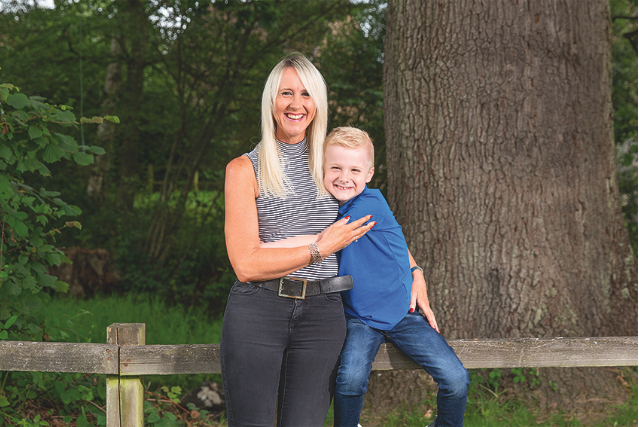
Max Foster spends her days supporting families at one of the most difficult points in their lives. “I work as relationships executive for Harrison’s Fund, which involves contacting families who have had a recent diagnosis of Duchenne muscular dystrophy and building up a network for mums and dads so they can talk about the challenges they face,” she explains. “Nobody can describe to you how you’re going to feel when you get that awful diagnosis, and lots of people are being diagnosed who don’t really know which way to turn.”
The pain of being faced with this diagnosis is something Max and her husband Steven – who came across the charity in a different capacity several years ago – are sadly very familiar with. “Our son Austin, who is now eight, was diagnosed with Duchenne muscular dystrophy in 2015, when he was two years old. He had never been a very content baby and cried and screamed a lot, then was quite late with his milestones – with sitting up and crawling and things like that – so I felt in my heart that there was something not quite right going on.
“When he was two, he had quite a severe sore throat – just an everyday illness – so we took him to the doctor who thought his behaviour was showing there was more happening. He sent us to the Royal Alexandra Children’s Hospital, Brighton, where Austin was given a variety of tests, as there were some indicators his muscles weren’t working very well, as he was a late walker. When the results came back, we were told they wanted to look further into Duchenne muscular dystrophy, which came as a complete shock to us.
“We were then referred to Evelina Hospital in London for genetic testing. Duchenne’s is caused by a genetic mutation in the dystrophin gene, in which one or more exons – parts of the gene – are missing. This means that the body is not able to produce enough – or any – dystrophin protein, which helps to strengthen muscle fibres.
“We were told the tests had shown that Austin was missing an exon from his genetic make-up and he was diagnosed with Duchenne,” Max recalls. “I knew a little bit about Duchenne, as my daughter Ava, now 12, had gone to nursery with a little boy who had
the condition, but the thought that Austin could have it had never crossed my mind. It was absolutely devastating and my darkest day so far. We had to travel back on the train from London after the diagnosis and I don’t remember much of that train journey at all. We were just completely stunned.”
Back home, Max and Steven started researching the condition online. “Although I knew a little bit about it, we soon started to learn the facts of what we were dealing with and the real horrors of it became apparent very quickly.
“It affects and causes progressive weakness in every single muscle in the body, which means that, in time, Austin will have to use a wheelchair. Eventually, it also damages the heart and respiratory muscles, making it life limiting.
“As a parent you want your children to grow up and do the ‘normal’ things like getting married or going off to university – just to live a long and happy life. I was full of fear for Austin’s future. He had already had so many struggles from birth and I was scared that life was going to continue to be a big struggle for him. It was also terrifying to realise I might outlive my son, which is something no parent should ever have to face.”
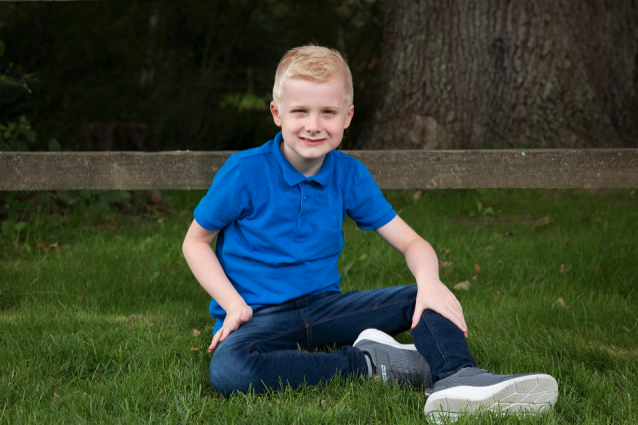
When Austin was six years old, he was also diagnosed with autism, which is often linked with Duchenne muscular dystrophy. “He used to have a lot of outbursts and didn’t like change. His school noticed he didn’t make very good eye contact and displayed a lot of autistic traits, so he was given a thorough assessment at our local hospital. I wasn’t surprised at all when we were told he was on the spectrum, but it does add to the challenges he already faces.
“Due to the Duchenne, Austin gets tired easily and suffers with leg cramps and soreness. He has to be very careful about how much he does and can’t run, jump, hop and skip – all the things youngsters do. He can get frustrated as he can’t keep up with his friends. He’s also on steroids to help him stay stronger for longer, but they have side effects and can change his mood and make him angrier.
“He has learning difficulties, so doesn’t read or write very well, and he doesn’t have a lot of physical strength to do things for himself, like dressing, so needs lots of support at school and at home.
“We attend a lot of appointments – sometimes as many as three in a week – with physios, occupational therapists and paediatric consultants, which can take its toll. Austin is also part of a clinical trial at Great Ormond Street Hospital, which we have been involved in for four years – he is given a weekly infusion of a medicine called Exondys in the hope it will produce dystrophin and keep him out of a wheelchair for a year or two longer. Although Austin is very good and used to this way of life, sometimes he gets upset and doesn’t want the infusion or to have needles put into him, which I completely understand. However, he doesn’t fully understand why we are doing this to him; it’s so difficult to explain to an eight-year-old that it’s to help him to grow into the man he should be.” Luckily, Austin and Max have lots of support to help them through the challenges they face.
“Austin is a fun little boy who makes everyone laugh, and he has lots of lovely friends who care for him. I’ve also made some great friends through Harrison’s Fund, who help me to keep going.”
Although Max is now employed by the charity, she first approached them for support shortly after Austin’s diagnosis. “I reached out to the mum of the little boy with Duchenne at my daughter’s nursery and she told me there were charities looking to find a cure for the disease and that I should speak to Alex, the founder of Harrison’s Fund. I was desperate for support, so contacted him right away and we had a really good chat.
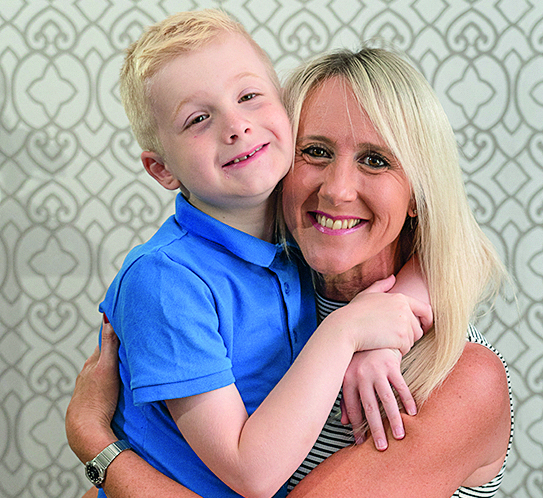
Maxine and her son Austin Foster. Picture by James Clarke. Copyright: James Clarke 2021
“Very soon after, we became family ambassadors for the charity, which involved taking an active role by helping to promote it, raise funds and speak to other families. We are quite a sporty family, so have done some cycling and running challenges to raise money for the charity and support its valuable work.
“We want our son to have the best chance in life, and we truly believe this charity’s funding of vital research is giving us the best hope of a cure being found. This generation of boys could be the generation that doesn’t die young or endure the horrors Duchenne brings, and the more research the charity funds the more likely this is to happen.”
HARRISON’S FUND
SUPPORT THE VITAL DUCHENNE RESEARCH OF HARRISON’S FUND
TOTAL RAISED: £12,160

Harrison’s Fund invests in groundbreaking research into finding a cure and treatments for Duchenne muscular dystrophy. Its one goal is to get as much money as possible into the hands of the world’s best researchers working to find a cure for the condition.
Duchenne muscular dystrophy is a serious genetic muscle-wasting condition caused by the lack of a protein called dystrophin. It is a progressive disease that is more common in boys. In its early stages, it affects the limb muscles, with the legs affected first, so children affected by the condition are slower to reach physical milestones and are late walkers.
BIG GIVE 2021
Harrison’s Fund is using the money raised in the Big Give Christmas Challenge to fund Sutura Therapeutics’ research into treatments that are effective for Duchenne muscular dystrophy. This research is trying tofind the best way to deliver the drugs to more than just the skeletal muscles – to ensure they can also get through to the heart, lungs and brain, which are all lacking in dystrophin. It is a novel area of research and is showing positive results in reaching all muscles in the body.
For more information, visit harrisonsfund.com.
WHAT HARRISON’S FUND MEANS TO ME
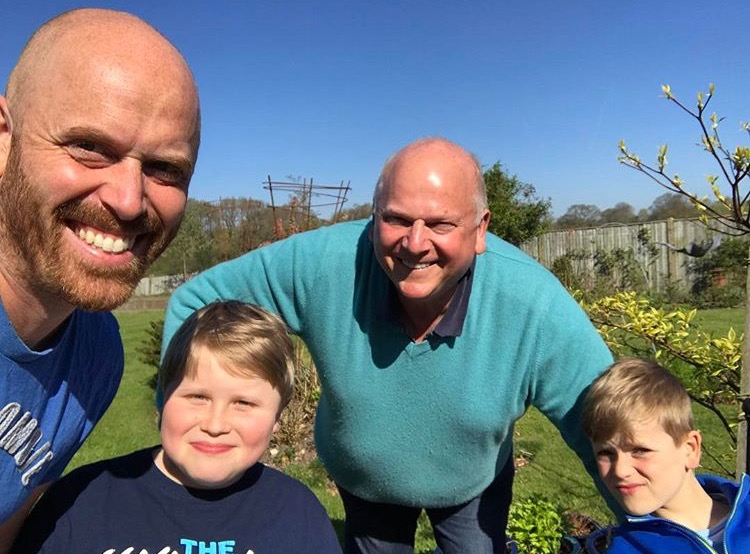
Alex Smith, the founder of Harrison’s Fund, explains why he set up the charity and why it is so special
“I decided to set up the charity Harrison’s Fund in 2011, after my son Harrison, now 15, was heartbreakingly diagnosed with Duchenne muscular dystrophy.
I immediately started researching all the different charities that were out there, where the research was at that time, what was being done in clinical trials and what the future looked like, and I wasn’t inspired by what I saw. I felt that there wasn’t a great deal of attention being paid to Duchenne, and not enough funding was going into researching the condition specifically, as opposed to other muscular dystrophies.
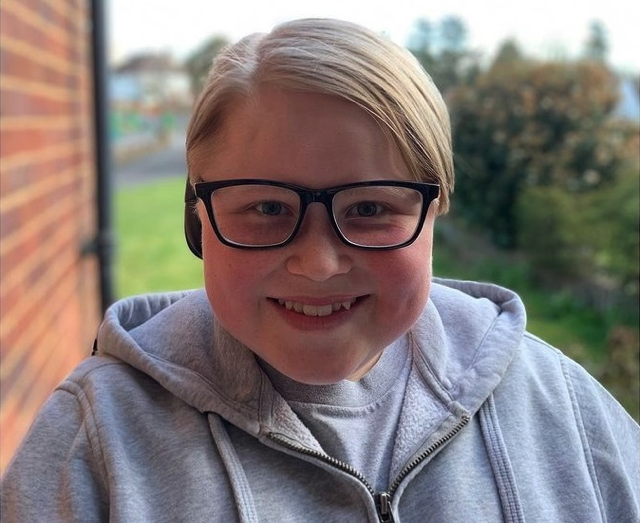
Harrison Smith.
As with many parents who set up charities, I was motivated by a longing to take some control and push the paradigm forwards. I wanted to focus on medical research – as I felt this was what would make the greatest difference to all those affected – and help take the research that very clever people were doing out of the lab and into the kids that needed it around the world.
Since then, we have funded over 20 different research projects around the world, which vary from gene therapy research to treatments to help different aspects of the condition. Having spoken to some of the best organisations in the world fighting Duchenne, it’s clear that for the very first time there may actually be a chance of a major breakthrough, and it’s wonderful to be a part of making that happen.
I think a parent-led charity will always be able to move quickly and act to change what’s happening, and we are determined to do all we can to find treatments for all those with Duchenne to slow its progression.
The most rewarding thing about my job is being able to bring hope to patients and their families, which we do by funding this life-changing research.”
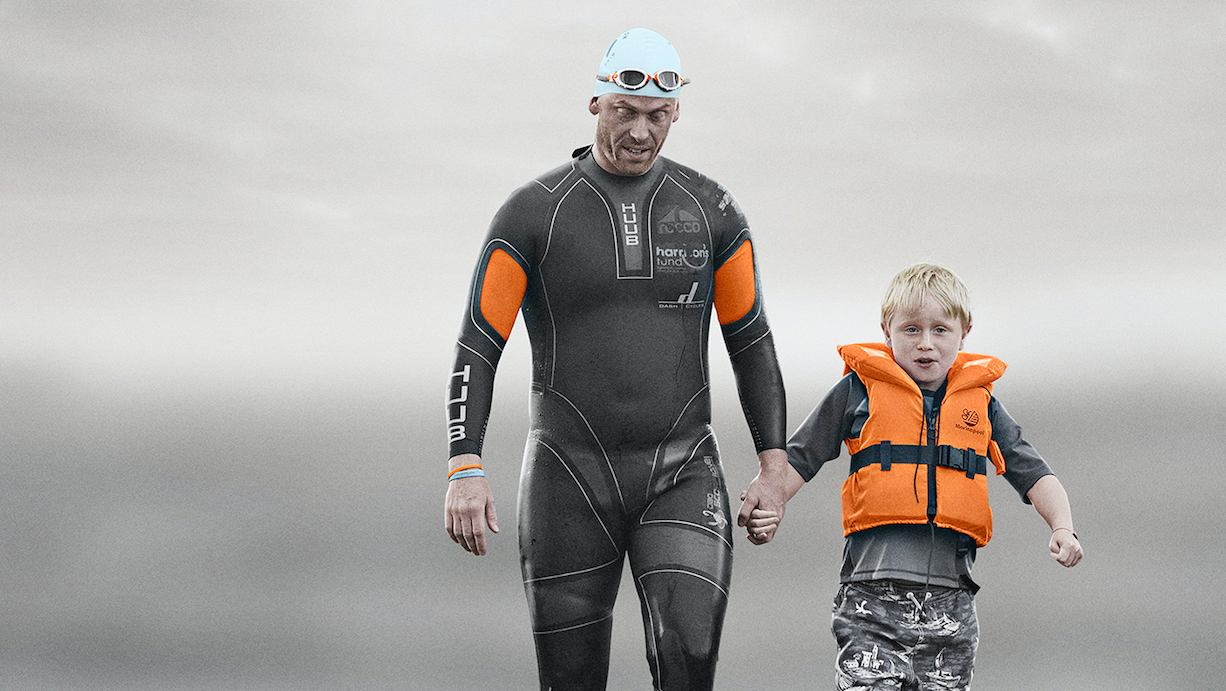

Leave a Reply
Please login or register to leave a comment.